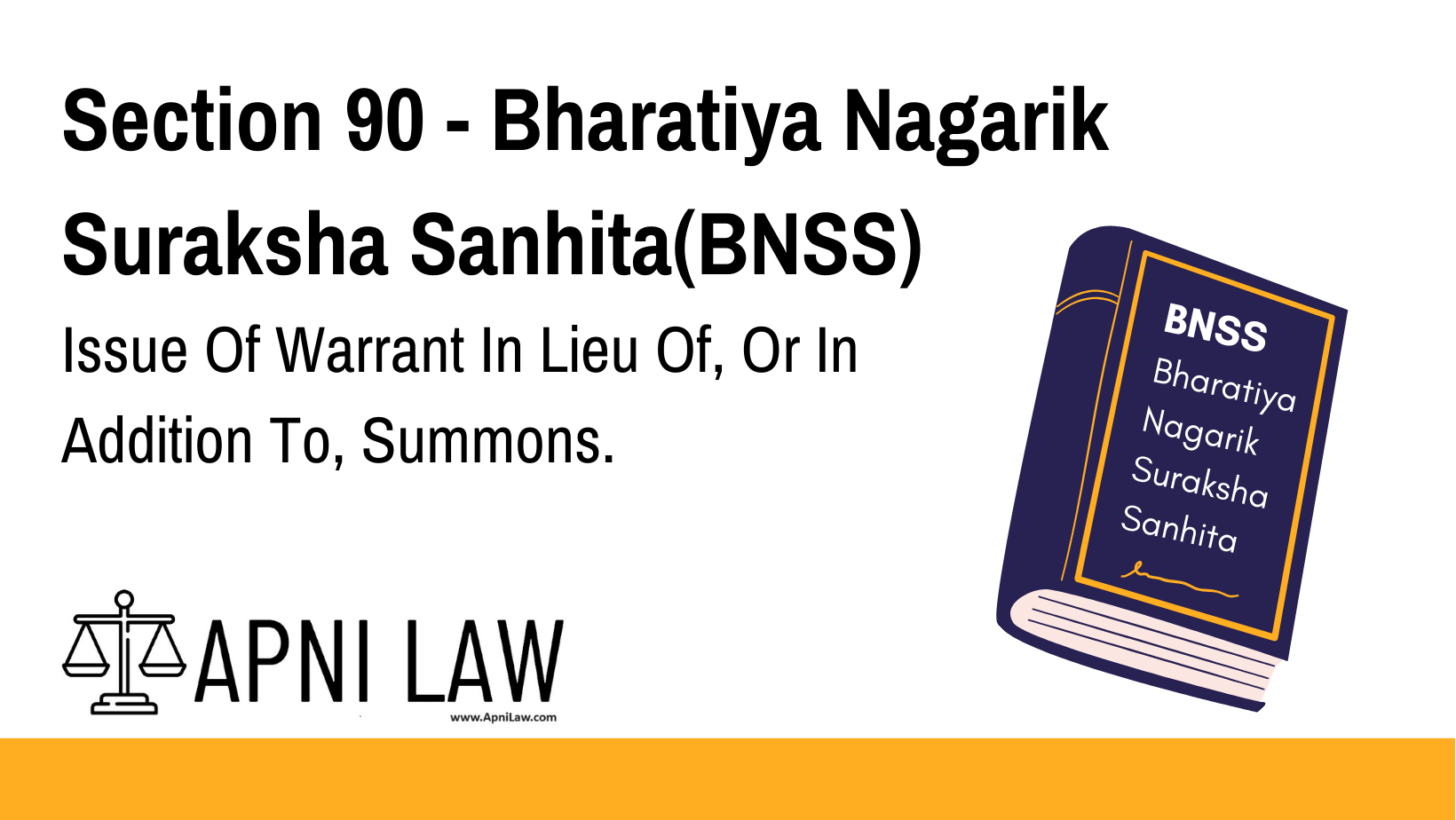Code: Section 90 BNSS
A Court may, in any case in which it is empowered by this Sanhita to issue a
summons for the appearance of any person, issue, after recording its reasons in writing, a
warrant for his arrest—
(a) if, either before the issue of such summons, or after the issue of the same but
before the time fixed for his appearance, the Court sees reason to believe that he has
absconded or will not obey the summons; or
(b) if at such time he fails to appear and the summons is proved to have been
duly served in time to admit of his appearing in accordance therewith and no reasonable
excuse is offered for such failure.
Explanation of Section 90 BNSS
Section 90 of the Bharatiya Nagarik Suraksha Sanhita (BNSS), 2023, empowers a Court to issue a warrant of arrest in place of a summons under certain circumstances. The provision ensures that individuals comply with court directives and do not evade judicial proceedings.
Key Provisions of Section 90 BNSS:
- Court’s Power to Issue Warrants:
- When a Court has the authority to issue a summons, it may instead issue a warrant if necessary.
- Conditions Under Which a Warrant May Be Issued:
- Before issuing a summons: If the Court believes that the individual is likely to abscond or disobey the summons.
- After issuing a summons but before the appearance date: If there is reason to believe the person will not comply.
- If the person fails to appear: When the summons has been duly served, but the individual does not show up without a reasonable excuse.
- Requirement to Record Reasons in Writing:
- The Court must record its reasoning before replacing a summons with a warrant to ensure transparency and fairness.
This section ensures compliance with judicial orders while safeguarding individuals from arbitrary arrests.
Illustration of Section 90 BNSS
Example 1: Issuing a Warrant Before a Summons
A Court is about to issue a summons for a businessman accused of financial fraud. However, intelligence reports suggest that he is planning to flee the country.
The Court, after recording its reasons, issues a warrant for his arrest under Section 90(a) BNSS instead of a summons.
Example 2: Issuing a Warrant After Summons is Ignored
A person accused of theft is served with a summons to appear before the Court on a specific date. Despite receiving the notice, he fails to appear without any valid reason.
The Court, under Section 90(b) BNSS, records the non-compliance and issues a warrant for his arrest.
Common Questions and Answers on Section 90 BNSS
1. Can a Court directly issue a warrant instead of a summons?
- Yes, but only if the Court records its reasons in writing and believes that the person is likely to abscond or disobey the summons.
2. What happens if a person ignores a summons?
- If a summons is duly served and the person fails to appear without a reasonable excuse, the Court may issue a warrant for their arrest under Section 90(b) BNSS.
3. Is there any safeguard against arbitrary issuance of warrants?
- Yes, the Court must record its reasons in writing before replacing a summons with a warrant, ensuring accountability and fairness.
4. What if a person provides a valid excuse for not appearing?
- If the person can justify their failure to appear, the Court may not issue a warrant and could provide another opportunity for compliance.
Conclusion
Section 90 BNSS is a crucial provision that allows Courts to issue warrants in place of summons when there is a risk of non-compliance. It ensures that individuals cannot evade legal proceedings while maintaining judicial fairness through the requirement of written reasoning.
For more legal insights, visit ApniLaw today! 🚀











